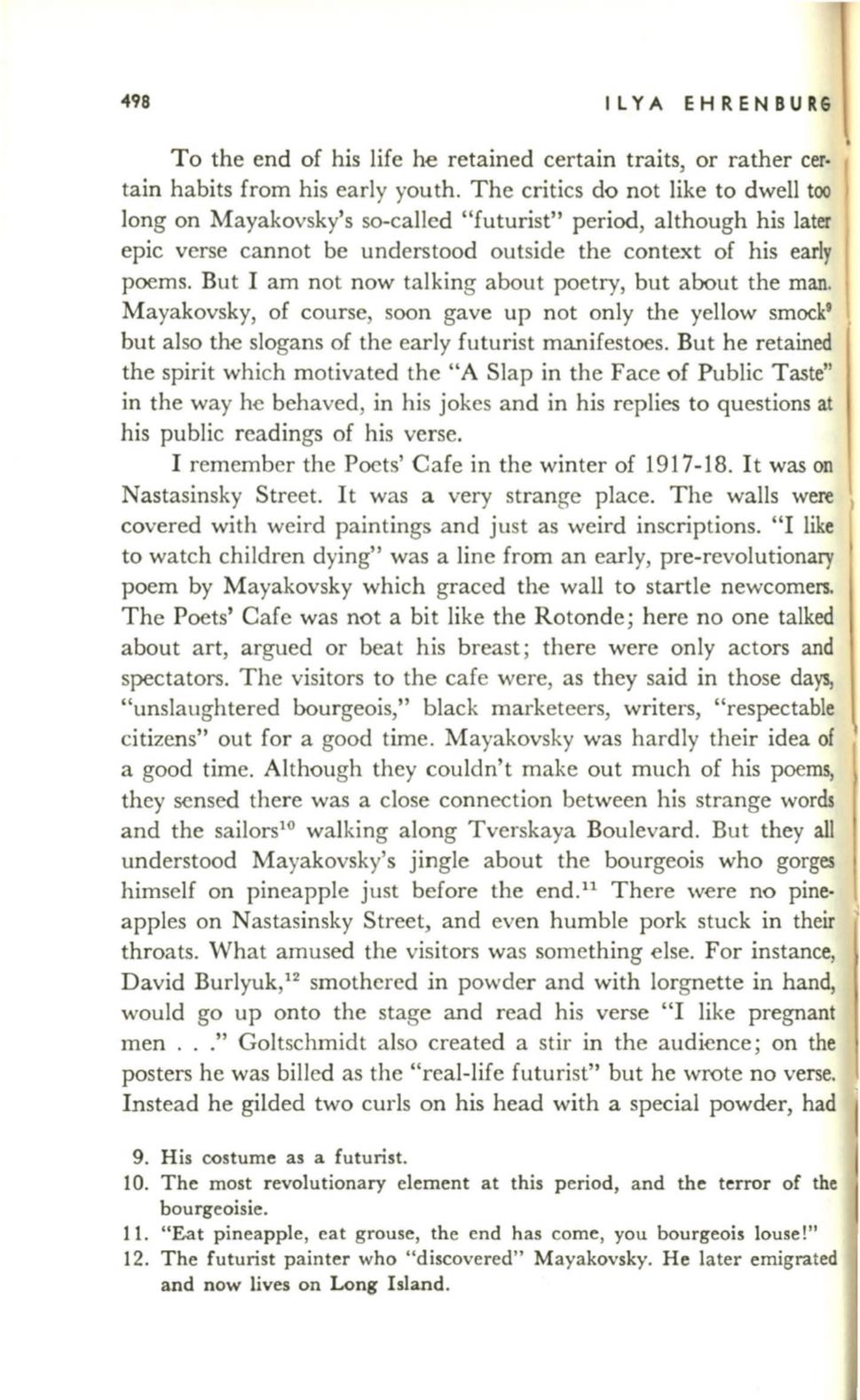
498
ILYA EHRENBUR6
To the end of his life he retained certain traits, or rather cer·
tain habits from his early youth. The critics do not like to dwell too
long on Mayakovsky's so-called "futurist" period, although his later
epic verse cannot be understood outside the context of his early
poems. But I am not now talking about poetry, but about the man.
Mayakovsky, of course, soon gave up not only the yellow smock;
but also the slogans of the early futurist manifestoes. But he retained
the spirit which motivated the "A Slap in the Face of Public Taste"
in the way he behaved, in his jokes and in his replies to questions at
his public readings of his verse.
I remember the Poets' Cafe in the winter of
1917-18.
It was on
Nastasinsky Street. It was a very strange place. The walls were
covered with weird paintings and just as weird inscriptions. "I like
to watch children dying" was a line from an early, pre-revolutionary
poem by Mayakovsky which graced the wall to startle newcomers.
The Poets' Cafe was not a bit like the Rotonde; here no one talked
about art, argued or beat his breast; there were only actors and
spectators. The visitors to the cafe were, as they said in those days,
"unslaughtered bourgeois," black marketeers, writers, "respectable
citizens" out for a good time. Mayakovsky was hardly their idea of
a good time. Although they couldn't make out much of his poems,
they sensed there was a close connection between his strange words
and the sailors
lO
walking along Tverskaya Boulevard. But they all
understood Mayakovsky's jingle about the bourgeois who gorges
himself on pineapple just before the end.
ll
There were no pine.
apples on Nastasinsky Street, and even humble pork stuck in their
throats. What amused the visitors was something else. For instance,
David BUrlyuk,12 smothered in powder and with lorgnette in hand,
would go up onto the stage and read his verse "I like pregnant
men ..." Goltschmidt also created a stir in the audience; on the
posters he was billed as the "real-life futurist" but he wrote no verse.
Instead he gilded two curls on his head with a special powder, had
9. His costume as a futurist.
10. The most revolutionary element at this period, and the terror of the
bourgeoisie.
11. "Eat pineapple, eat grouse, the end has come, you bourgeois louse!"
12. The futurist painter who "discovered" Mayakovsky. He later emigrated
and now lives on Long Island.


